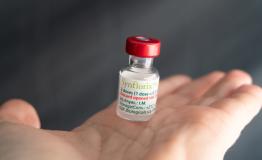

Honduras
Honduras has experienced years of social, economic and political instability, which is reflected in the high rates of homicide, sexual violence and forced displacement of vulnerable people.
In 2020, the combination of COVID-19 and natural disasters, such as hurricanes Eta and Iota – the worst storms to hit Central America since hurricane Mitch in 1998 – had a devastating effect on the country, exacerbating the already high levels of unemployment and food insecurity.
Widespread destruction of infrastructure, caused by the storms, means that a long-term period of reconstruction will be required.

26,800
26,8
4,660
4,66
160
16
In February, when the government declared a state of emergency due to the pandemic, the lockdown measures confined women and children in violent domestic environments without the possibility of seeking support. In response, MSF rapidly introduced helpline services and organised mental health follow-up for survivirs of sexual violence.
In the department of Choloma, our teams ensured continuity of care at a mother and child clinic, the only one in the area offering family planning, ante- and postnatal consultations and psychological support to victims of violence. We also assisted births.
In June, we started to offer comprehensive medical services to COVID-19 patients at the National University sports facility in Tegucigalpa, in collaboration with the Ministry of Health and the Metropolitan Health Region. In addition, our teams established COVID-19 triage and provided oxygen treatment at Nueva Capital health centre.
In November and December, when the hurricanes struck, leaving 250,000 people with limited access to health services, MSF teams provided medical and psychological care, as well as health promotion, in the shelters located in the most affected areas. We also assisted victims of sexual violence.
During the year, as migrant caravans gathered to travel north towards the United States, we sent teams to offer first aid and psychosocial support at different points along the route.
No. staff in 2020: 147 (FTE) » Expenditure in 2020: €3.8 million MSF first worked in the country: 1974
